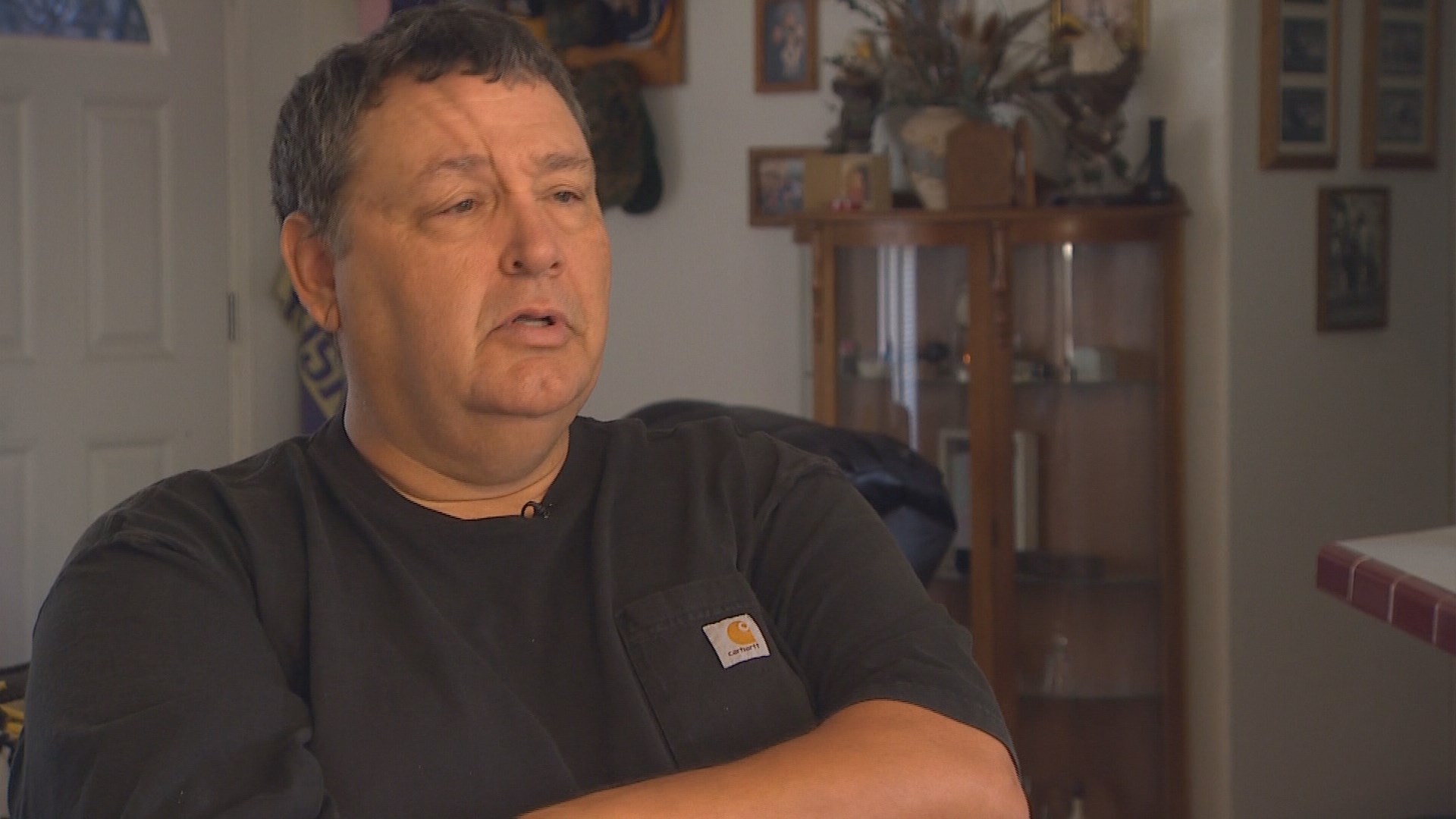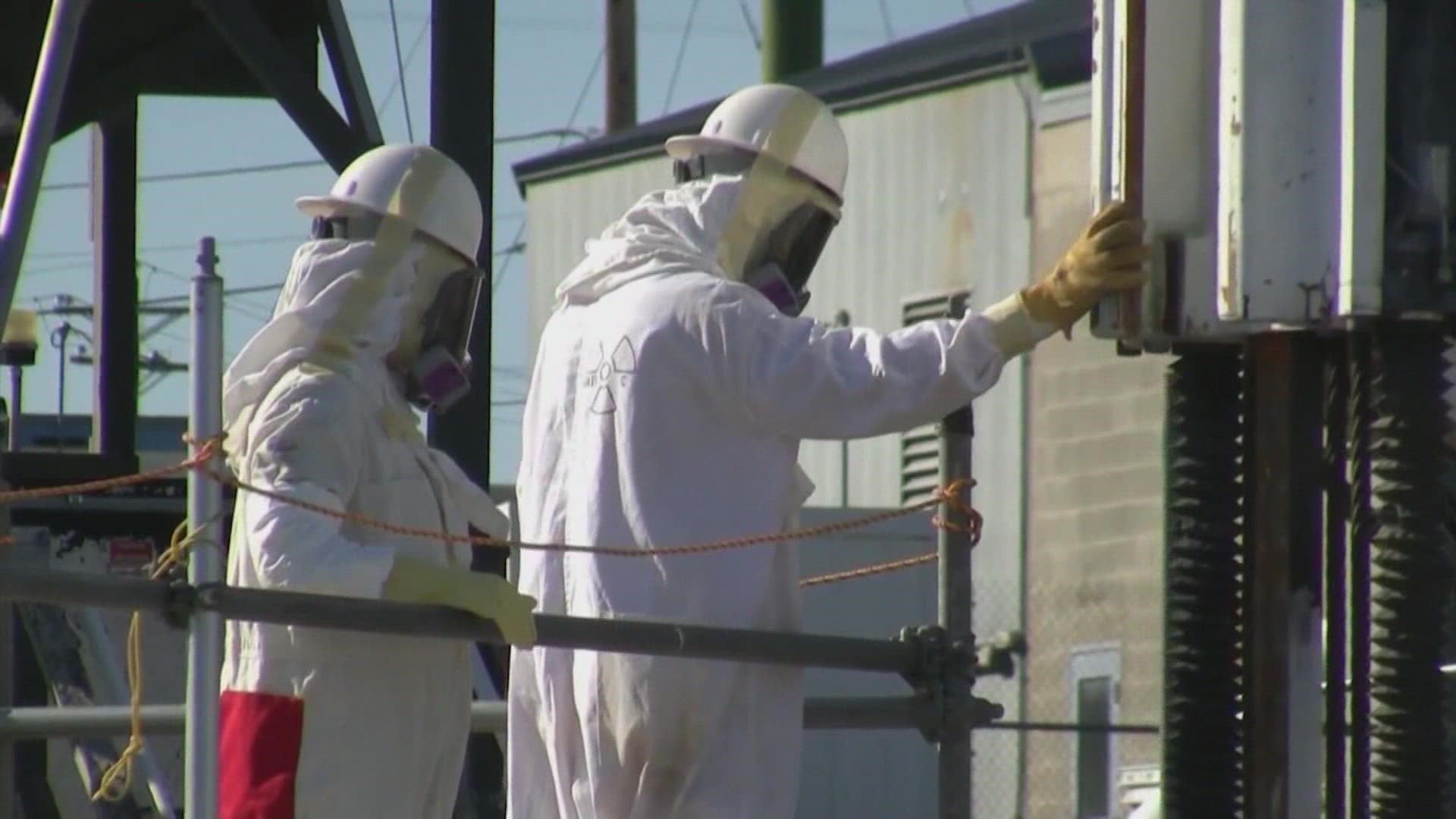Exposure to chemical vapors from a devastating spill of radioactive nuclear waste changed the course of Lonnie Poteet Killinghawk’s life in every way possible.
He lost his health, his job, and his entire life savings. The spill happened in 2007. Nine years later, his money is gone and his home is in foreclosure.
“Financial ruin for sure,” said Killinghawk. “I had a nice savings started in two different banks and now they’re gone, wiped out. I’ve got $5 (in one) and $5 (in the other) to keep the account open…and then we came home one day and there’s the posting on your door, ‘We’ve started the foreclosure process.’ It’s shocking and horrifying.”
Killinghawk watched his savings dwindle as he paid for expensive medications, doctor visits and medical treatments while fighting the U.S. Department of Energy, which own Hanford, and its contractors to pay the bills.
“Someone is always trying to delay. Delay payment, delay care or medications and it’s not right. Bottom line it’s not right,” said Killinghawk.
On July 27, 2007 Killinghawk was going about his routine of fueling equipment in a tank farm at Hanford. That’s where massive carbon steel underground tanks store the legacy left behind by the secret Manhattan project – hot, radioactive, nuclear waste – the most dangerous substance known to man.
Unbeknownst to Killinghawk, 11 hours before the beginning of his shift, a hose used to transfer waste ruptured. As much as 114 gallons of radioactive, chemically contaminated waste spilled onto the ground and nearby pieces of equipment. But while other workers had been evacuated and ordered to stay out of the area, no one alerted Killinghawk. For more than a half hour, he worked directly by the spill, breathing in toxic vapors.
“I’m angry and I’m upset about it. They destroyed my life,” said Killinghawk. “They knew there was a problem, but they chose not to do anything.”
As a result, Killinghawk has been diagnosed with trigeminal neuralgia. It’s a degenerative disease that causes electric-like bolts of pain to shoot through the face. It’s considered one of the most painful conditions a person can endure. During the hour long interview with KING 5, Killinghawk winced in pain approximately every 60 seconds.
“It’s difficult, he’s very strong and self (motivated), and this is devastating to him,” said his wife Toni Killinghawk.
Right from the beginning, Killinghawk said it was a battle to get help with his medical needs from the U.S. Department of Energy, which owns Hanford.
A Health Effects Report authored by CH2MHill, the Dept. of Energy contractor in charge of the tanks at the time, found “no evidence of an adverse impact to human health” from the spill. Investigators found the workers with symptoms of illness could have been affected by other factors including “herbicide spraying, dehydration, stress, and environmental factors such as dust, pollen, and smoke from wildfires.”
Downplaying adverse health effects from chemical exposure is a longstanding pattern at Hanford. Many studies have shown that the attitude of the Department of Energy is to deny a problem exists, and then deny help to take care of victims.
After all that Killinghawk has lost, he has not lost his will to help others. He said he won’t give up fighting for Hanford workers who still work at the site, including the 60 people exposed to suspected vapors in the last three months.
“That’s crap. That’s just really, really wrong because they’re going to suffer,” Killinghawk said. “Just like I suffered and like others before me suffered. That’s horrific that that goes on to this very day.”


